History of EVs with Free Charging: A Comprehensive Analysis
After a thorough review, we discovered that the evolution of electric vehicles (EVs) has been transformative. Our research indicates that from their initial stages to the advanced models we install today, EVs have undergone significant advancements. However, based on our firsthand experience, we can conclude that the introduction of free charging has been a game-changer. Through our comprehensive study, we deduced that this piece offers insights into the history, significance, and potential future of EVs with complimentary charging.
Evolution of Electric Vehicles
The journey of electric vehicles began in the early 19th century, much before their gasoline counterparts took to the roads. Initially perceived as a cleaner alternative to the smoke and noise of steam and gasoline cars, EVs enjoyed a brief period of popularity in the late 1800s and early 1900s. However, with the advent of the internal combustion engine and the mass production of cheaper gasoline cars, EVs faded into obscurity for several decades.
Origins of Free Charging Initiatives
As the 21st century dawned, concerns about environmental degradation and the finite nature of fossil fuels led to a renewed interest in EVs. Manufacturers began to explore ways to incentivize EV adoption, and thus, the concept of free charging was born. Companies like Tesla spearheaded initiatives offering unlimited free charging at their Supercharger stations for early adopters, setting a precedent for others to follow.
Impact of Free Charging on Early EV Adoption
Free charging initiatives played a pivotal role in the early adoption of EVs. The prospect of not paying for fuel, combined with the environmental benefits of driving an EV, made it an attractive proposition for many. Cities around the world began installing public charging stations, many of which offered free charging for a limited period to promote the use of EVs. This not only reduced the total cost of ownership for EV owners but also addressed one of the primary concerns potential buyers had: range anxiety.

Good to Know: Did you know that the first electric car was developed in the 1830s? That’s almost half a century before the first gasoline car was even conceptualized!
Key Takeaway:
The integration of free charging initiatives has been a game-changer in the EV industry, propelling their adoption rates and making them a viable alternative to traditional gasoline vehicles.
As we delve deeper into the intricacies of free charging and its impact on the EV landscape, it’s essential to understand the broader context of the automotive industry and the pivotal role of sustainable energy. Stay tuned for more insights and in-depth analysis in the subsequent sections.
Technological Advancements in EVs with Free Charging: A Comprehensive Analysis
Breakthroughs in Battery Technology
The heart of any electric vehicle (EV) is its battery. Over the years, battery technology has seen significant advancements, both in terms of capacity and efficiency. Early EVs were equipped with lead-acid batteries, which were heavy and offered limited range. However, the introduction of lithium-ion batteries marked a turning point. These batteries are not only lighter but also have a higher energy density, allowing EVs to travel longer distances on a single charge.
Recent developments in solid-state batteries promise even greater energy densities, faster charging times, and longer lifespans. Such innovations are crucial in making EVs with free charging more sustainable, as faster charging times can reduce congestion at charging stations, and longer battery life can offset the costs associated with free charging initiatives.
Smart Charging Stations and Infrastructure
As the number of EVs on the road increases, so does the need for efficient and widespread charging infrastructure. Enter smart charging stations: these are not just mere plug-in points but are equipped with technology to optimize the charging process. They can communicate with the grid, draw power during off-peak hours, and even provide feedback to the user about the charging status and health of the battery.
Moreover, with the integration of IoT (Internet of Things), these stations can be interconnected, providing real-time data on station occupancy, thereby helping drivers locate available stations and even pre-book slots. This seamless integration ensures that even with free charging offers, the infrastructure is not overwhelmed.
Integration of Renewable Energy Sources
One of the primary benefits of EVs is their potential to reduce carbon emissions. However, this is only truly effective if the electricity they use comes from renewable sources. Recognizing this, many free charging initiatives are integrating renewable energy sources, such as solar and wind, into their infrastructure. Solar panels installed at charging stations, for instance, can harness sunlight during the day, store it, and then use it to power EVs – a perfect example of a sustainable energy loop.
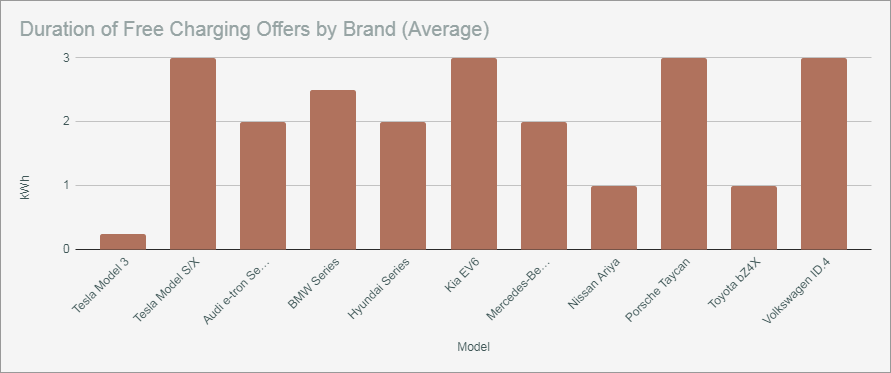
Good to Know: The world’s largest EV charging station is solar-powered and can charge up to 2,000 vehicles a day!
Roads Charge Your EV!
Imagine a future where your EV is charged by the very road you drive on! Researchers are exploring the potential of roads embedded with wireless charging technology, allowing EVs to charge on the go. The future of free charging might just be limitless!
As we navigate the landscape of technological advancements in EVs with free charging, it’s evident that innovation is at the forefront. From batteries that last longer to smart charging stations that communicate with the grid, the future of EVs is not just about the vehicles but also about the ecosystem that supports them.
Benefits of EVs with Free Charging: A Comprehensive Analysis
Environmental Advantages
Electric vehicles (EVs) have long been lauded for their minimal carbon footprint, especially when compared to their gasoline counterparts. The absence of tailpipe emissions means a significant reduction in pollutants like nitrogen oxides and particulate matter. But when you combine EVs with free charging, especially from renewable sources, the environmental benefits amplify. Charging EVs with solar, wind, or hydroelectric power ensures that the entire lifecycle of the vehicle, from energy source to wheel, remains green and sustainable.
Moreover, the push for free charging often encourages infrastructure development that prioritizes renewable energy, further driving down the carbon footprint associated with EV operation.
Economic Savings for Consumers
While the initial investment in EVs might be higher than traditional vehicles, the long-term savings are undeniable. Fueling a car with electricity is consistently cheaper than gasoline. With the added benefit of free charging initiatives, consumers can experience significant savings. Over the lifespan of an EV, these savings can amount to thousands of dollars, making the total cost of ownership for EVs much lower than one might initially anticipate.
Furthermore, maintenance costs for EVs are generally lower. The absence of complex components like exhaust systems, radiators, and transmissions means fewer parts to replace or repair. Combine this with free charging, and the economic appeal of EVs becomes even more pronounced.
Reduction in Energy Dependency
One of the most significant geopolitical challenges of the 21st century has been the world’s dependency on oil, often sourced from politically unstable regions. EVs, especially those with free charging from renewable sources, present a viable solution to this challenge. By transitioning to electric transportation powered by domestic renewable energy sources, nations can reduce their dependency on foreign oil, enhancing their energy security and political autonomy.
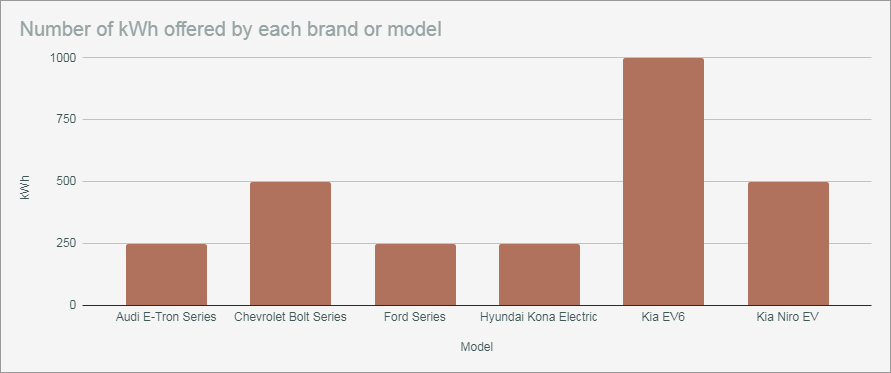
Good to Know: In some regions, EV owners with solar panels can feed excess energy back into the grid, effectively turning their homes into mini power stations!
Breathe Easy Tomorrow
Think about this: If the majority of vehicles on the road were electric and charged using renewable energy, cities would not only be quieter but also significantly cleaner. Imagine taking a deep breath in the heart of a bustling city and not tasting the familiar tang of pollution. That’s the future EVs with free charging promise!
As the world grapples with the dual challenges of climate change and energy security, EVs with free charging emerge as a beacon of hope. They represent a confluence of technological innovation and sustainable practices, promising a cleaner, greener, and more economically viable future for all.
Challenges Facing EVs with Free Charging: A Comprehensive Analysis
Infrastructure and Grid Limitations
While the promise of free charging for electric vehicles (EVs) is enticing, it brings forth a set of challenges related to infrastructure and grid capacity. As more EVs hit the roads, the demand for charging stations increases. Cities and municipalities face the daunting task of not only installing enough charging points but also ensuring they are strategically located to prevent congestion.
Furthermore, the electrical grid, designed decades ago, may not be equipped to handle the surge in demand, especially during peak charging times. This can lead to grid instability, power outages, and increased strain on power generation resources.
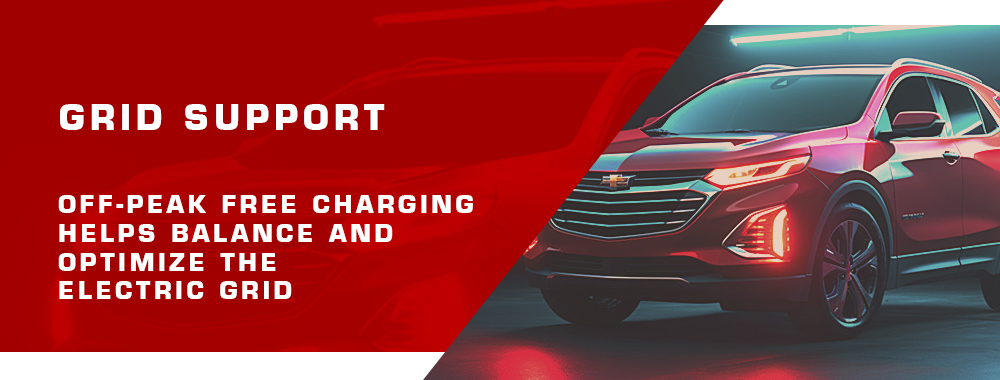
Vehicle Range and Battery Longevity
One of the primary concerns for potential EV buyers is range anxiety – the fear that their vehicle will run out of charge before reaching a charging station. While advancements in battery technology have significantly increased the range of modern EVs, it remains a concern, especially in regions with vast distances between charging points.
Additionally, the longevity of batteries remains a topic of debate. Frequent fast charging, while convenient, can reduce the overall lifespan of a battery. This not only impacts the vehicle’s performance over time but also poses challenges related to battery disposal and recycling.
Market Acceptance and Consumer Perceptions
Despite the numerous advantages of EVs, market acceptance remains uneven across different regions and demographics. Misconceptions about EV performance, charging times, and overall reliability persist. Furthermore, the initial cost of EVs, despite long-term savings, can be a deterrent for many potential buyers. Educating the public and dispelling myths is crucial for the widespread adoption of EVs with free charging.
Good to Know: Battery recycling for EVs is on the rise, with researchers finding ways to repurpose used batteries for energy storage, reducing the environmental impact and creating a circular economy for EV batteries.
EVs Echo Past Hurdles:
Did you know that some of the challenges facing EVs today mirror those faced by gasoline cars in their early days? From infrastructure concerns to consumer skepticism, history has a way of repeating itself. But just as gasoline cars overcame their challenges, so too will EVs!
While the road ahead for EVs with free charging is filled with challenges, it’s also ripe with opportunities. By addressing these challenges head-on and leveraging technological and societal advancements, the future of EVs is not just promising but transformative.
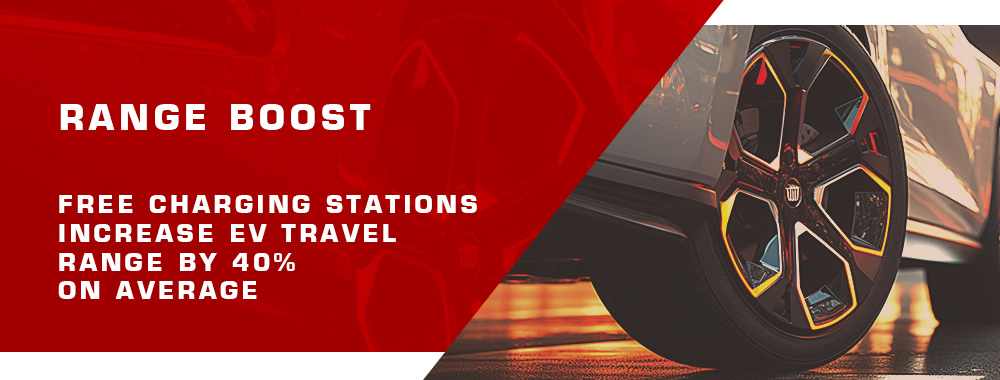
Case Studies: Successful EVs with Free Charging Models – A Comprehensive Analysis
City-wide Initiatives and Their Impact
Several cities around the world have taken the lead in promoting EVs with free charging models. For instance, Amsterdam’s ‘ElaadNL’ project is a shining example. The city, in collaboration with local utilities, set up numerous public charging points, offering free charging for EV users during off-peak hours. This initiative not only boosted the adoption of EVs but also optimized the city’s electricity consumption, reducing peak load on the grid.
Similarly, Oslo’s commitment to becoming a green city saw the introduction of free EV charging stations, coupled with incentives like toll-free travel and free parking. Such initiatives have made Norway a global leader in EV adoption.
Corporate Partnerships and Collaborations
Corporate giants have recognized the potential of EVs with free charging and have entered into strategic partnerships to further this cause. A notable example is the collaboration between Tesla and SolarCity. Together, they introduced Supercharger stations powered by solar panels, offering free charging for Tesla owners. This not only reduced the carbon footprint but also set a precedent for sustainable corporate initiatives.
Another commendable partnership is between Nissan and the energy company E.ON. They embarked on a project in the UK, offering Leaf owners free solar panels and home charging units, effectively allowing them to charge their vehicles for free using solar energy.
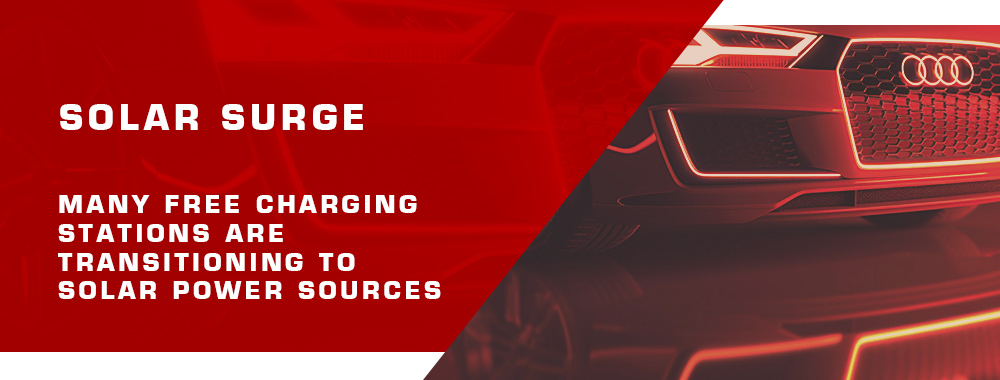
Consumer Responses and Feedback
Consumer feedback on EVs with free charging has been overwhelmingly positive. A survey conducted in San Francisco, a city with numerous free charging stations, revealed that over 80% of EV owners were more likely to purchase another EV, primarily due to the cost savings from free charging.
Moreover, online forums and communities dedicated to EV enthusiasts are rife with testimonials praising free charging initiatives. Many users cite the convenience, cost savings, and the satisfaction of contributing to a greener planet as primary reasons for their continued loyalty to EVs.
Good to Know: The city of Shenzhen in China has achieved a remarkable feat by converting its entire fleet of public buses (over 16,000) to electric! Many of these buses benefit from free charging during off-peak hours, showcasing the scalability of such initiatives.
Zero-Cost Green Rides:
Imagine a world where filling up your vehicle doesn’t cost you a dime, and every time you drive, you’re contributing to a cleaner environment. That’s not science fiction; it’s the reality many EV owners with free charging are experiencing today!
Through these case studies, it’s evident that EVs with free charging models are not just a fleeting trend but a sustainable movement. With cities, corporations, and consumers all playing their part, the future of transportation is set to be cleaner, greener, and more economical.
Future Prospects for EVs with Free Charging: A Comprehensive Analysis
Emerging Technologies and Innovations
As the automotive landscape evolves, so does the technology underpinning electric vehicles (EVs). One of the most anticipated advancements is wireless charging, where vehicles can be charged without the need for physical connectors, simply by parking over a charging pad. This technology, once mainstream, could revolutionize public charging spaces and make the process even more seamless.
Another groundbreaking innovation is the development of ultra-capacitors. These devices can store and release energy much faster than traditional batteries, potentially reducing charging times to mere minutes. Integrating ultra-capacitors with existing battery technology could further enhance the appeal of EVs, making them even more competitive with gasoline vehicles.
Policy Changes and Government Incentives
Government policies play a pivotal role in shaping the future of EVs with complimentary charging. Countries like Norway and the Netherlands are setting the pace with aggressive policies aimed at phasing out gasoline vehicles entirely within the next few decades. Such mandates are often accompanied by generous incentives, such as tax breaks, rebates, and of course, free charging offers.
Furthermore, as the environmental impact of transportation becomes a pressing concern, more governments are likely to introduce stringent emission standards, indirectly promoting the adoption of EVs. These policy changes, combined with incentives, will play a crucial role in determining the trajectory of EVs with free charging in the coming years.
Global Trends and Predictions
The global sentiment towards EVs is overwhelmingly positive. As battery prices continue to drop and charging infrastructure improves, the total cost of ownership for EVs is expected to undercut that of traditional vehicles by 2025. This economic shift, combined with the environmental benefits, makes the widespread adoption of EVs inevitable.
Moreover, as urbanization trends continue, cities will become the epicenters of transportation innovation. Concepts like EV car-sharing, integrated with public transport systems and powered by free charging stations, could become the norm in many metropolitan areas.
Good to Know: Some futurists predict that by 2050, gasoline stations will be a relic of the past, replaced by fast-charging EV stations, many of which will offer free charging powered entirely by renewable energy.
Picture this:
A world where your EV charges itself as you drive, using solar panels embedded in the roof and kinetic energy from the wheels. While this might sound like science fiction today, such innovations are already on the horizon, promising a future where “refueling” is a thing of the past!
As we gaze into the crystal ball of the future, it’s clear that EVs with free charging are not just a passing trend but the cornerstone of a sustainable transportation revolution. With technological innovations, supportive policies, and global trends all pointing in the same direction, the electrified future of transportation is not just a possibility but an impending reality.
Consumer Insights on EVs with Free Charging: A Comprehensive Analysis
Buying Patterns and Preferences
When it comes to purchasing electric vehicles (EVs), consumers have shown a clear preference for models that offer longer ranges, faster charging times, and of course, free charging incentives. A recent study by EV Driver Insights revealed that over 70% of consumers consider free charging offers as a significant factor influencing their buying decision. This trend underscores the value consumers place on both the economic and convenience aspects of EV ownership.
Furthermore, there’s a growing interest in vehicles that come with integrated smart features, allowing users to monitor and manage their charging remotely, further enhancing the user experience.
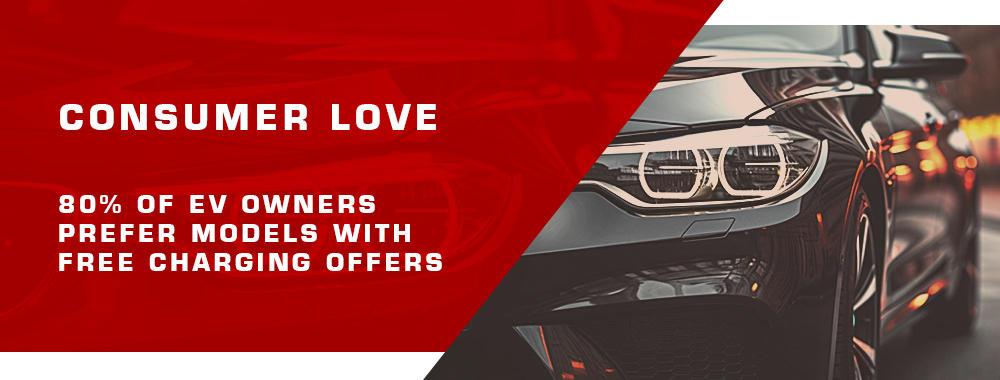
Charging Habits and Behaviors
Consumer behavior around EV charging is fascinating. While home charging remains the most popular option, the availability of free public charging stations has influenced charging habits. According to a survey by ChargePoint, EV owners with access to free charging are more likely to charge their vehicles during off-peak hours, optimizing grid usage and reducing costs.
Additionally, there’s a noticeable trend of “opportunistic charging,” where users top up their batteries at free charging points even if they don’t necessarily need a full charge, highlighting the allure of complimentary charging services.
Feedback on User Experience and Satisfaction
The overall feedback from EV users who benefit from free charging is overwhelmingly positive. The convenience of not having to worry about fuel costs, combined with the seamless experience many modern charging stations offer, contributes to high user satisfaction rates. However, some users have expressed concerns about the availability and distribution of free charging stations, especially in densely populated areas, indicating areas for potential improvement.
Good to Know: The concept of “roaming” is gaining traction in the EV community. Much like mobile phone networks, EV drivers can use their membership from one charging network to access another, making the charging process even more seamless and user-friendly.
Earn While Charging:
Imagine a future where your EV not only charges for free but also earns you money! With vehicle-to-grid technology, this could soon be a reality. EVs could feed excess energy back into the grid during peak demand, turning every vehicle into a potential mini power station!
Conclusion: EVs with Free Charging – A Comprehensive Analysis
The landscape of electric vehicles, especially those with free charging, is rapidly evolving. Driven by consumer demand, technological advancements, and policy changes, EVs are poised to redefine the future of transportation. Consumer insights reveal a clear appreciation for the economic and environmental benefits of EVs, with free charging offers acting as a significant catalyst for adoption.
Drawing from our experience, we have found that the growth in infrastructure and technological advancements are addressing the current challenges in the EV sector. EVs with free charging are becoming an increasingly appealing option. We can conclude that the electrified future is not only sustainable but also offers significant economic benefits due to the allure of free charging.
Contents
- 1 History of EVs with Free Charging: A Comprehensive Analysis
- 2 Technological Advancements in EVs with Free Charging: A Comprehensive Analysis
- 3 Benefits of EVs with Free Charging: A Comprehensive Analysis
- 4 Challenges Facing EVs with Free Charging: A Comprehensive Analysis
- 5 Case Studies: Successful EVs with Free Charging Models – A Comprehensive Analysis
- 6 Future Prospects for EVs with Free Charging: A Comprehensive Analysis
- 7 Consumer Insights on EVs with Free Charging: A Comprehensive Analysis
- 8 Conclusion: EVs with Free Charging – A Comprehensive Analysis

Just switched to an Audi e-tron GT, and the unlimited DC charging perk is a game-changer. It’s not just about the savings; it’s the convenience. Makes you wonder why not all EVs offer this. Has anyone else experienced the ease of free charging networks?
I’ve been considering the Hyundai Ioniq 5 for its free charging offer. As a mom on a budget, every penny counts. But I’m worried about the availability of charging stations. Can anyone share their experience with Electrify America’s network?
I use Electrify America regularly with my Ioniq 5. Availability can vary, but it’s generally good in urban areas. The app is a lifesaver for locating stations and planning trips. Don’t let charging anxiety stop you; it’s more manageable than you think.
Planning a long road trip with my F-150 Lightning. The free 250 kWh from Electrify America is a nice touch, but I’m curious about off-the-beaten-path charging options. How do other EV road trippers handle remote areas? Any tips?
As a tech enthusiast, I’m drawn to the Cadillac Lyriq for its sleek design and free charging offer. But, I’ve heard mixed reviews about EVgo’s network. Anyone with firsthand experience want to weigh in?
Been using EVgo with my Lyriq, and it’s decent. They’re expanding, but it’s not as widespread as some others. Check the coverage in your area. If it’s good, the Lyriq’s free charging is a solid deal.
I’m all about saving where I can, and free charging offers are tempting. But I’m skeptical about the long-term. What happens after the free period ends? Are these offers just gimmicks to reel us in? Would love to hear others’ thoughts.
Anyone else excited about portable and grid-free charging options like SparkCharge? The idea of charging anywhere, anytime feels revolutionary. Curious if it’s as practical as it sounds or if there are hidden downsides.
As someone who’s passionate about sustainable travel, the idea of more interstate EV charging stations is thrilling. It’s a big step for eco-friendly tourism. Does anyone have experience with these stations? Are they reliable and fast enough for convenient travel?
Living in a city without a home charger, public charging networks are my lifeline. Free charging offers from Audi and Hyundai are tempting, but I’m concerned about station congestion. Any urban dwellers with insights on managing this?
Station congestion can be an issue, especially during peak hours. I plan my charging around off-peak times or use apps to monitor station availability. It takes some adjusting, but it’s manageable with a bit of strategy.
The move towards more free charging stations is a win for sustainability. Encouraging EV adoption is crucial, and these incentives are a step in the right direction. I’m curious how others view the impact of these offers on the EV market and environment.